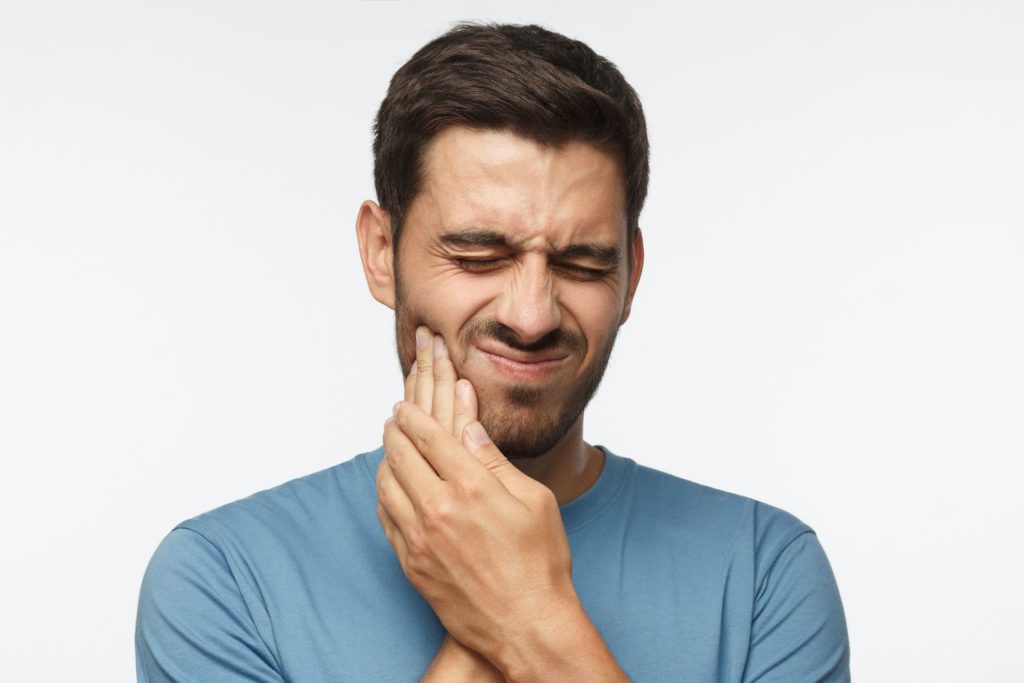Temporomandibular Joint Disorder (TMJ) is a painful condition that affects the jaw joint. Your jaw joint is responsible for opening and closing your mouth; it connects the jaw to the head with a series of muscles and ligaments. Having TMJ comes with a variety of symptoms that can cause discomfort and dysfunction. In mild cases, you may feel a popping or clicking sensation in your jaw when you open your mouth. However, more difficult cases can cause severe pain in the face and jaw, which can cause your mouth to “lock” or freeze in place.
There is no one direct cause of TMJ. However, some factors include trauma, arthritis, or bruxism. Bruxism–or teeth grinding–is a condition in which someone chronically grinds their teeth or clenches their jaw. Over time, the muscles in your jaw become overworked, leading to tension and strain. In fact, you can genetically inherit a dysfunction in your jaw, which can develop into TMJ.
Some cases of TMJ do not need treatment because the symptoms are mild. However, others will need to seek treatment due to pain and discomfort. Your dentist can offer you several treatment options.

Mouthguard
One way to treat your TMJ symptoms is to wear a mouthguard while you sleep. This is because many people grind their teeth in their sleep, which can cause TMJ over time. As you move your jaw back and forth, it creates excess strain on your muscles and joints. The stress causes tension, which your jaw cannot handle. Additionally, teeth grinding can weaken your teeth with chips and breaks. Therefore, a mouthguard can help minimize the damage.
Rather than your teeth grinding against each other, a mouthguard can provide a cushion to reduce the impact of bruxism. In addition, a mouthguard can decrease the strain on your muscles. Over time, this can eliminate your TMJ symptoms.
Orthodontic Work
Another way that you can develop TMJ is if you have a bad bite or malocclusion. This occurs when your teeth and jaw are not aligned properly. For example, crooked teeth and an underbite are types of bad bites that can cause TMJ. If your teeth and jaw cannot work together, the muscles in your jaw and face will work harder to correct the issue. When this happens, the jaw joint experiences more wear and tear than normal. Additionally, some bite problems can impair the way your jaw functions.
However, your dentist can offer orthodontic treatment to realign your teeth and jaws.
Physical Therapy
If you have experienced physical trauma or have a muscle imbalance, you may be a candidate for physical therapy. Physical therapy is a type of treatment that aims to correct the way your jaw and muscles move together. For example, you may do a series of exercises that can build the muscles in your jaw, helping them move better. Also, a physical therapist might recommend rest and anti-inflammatory medications to minimize your TMJ symptoms.
